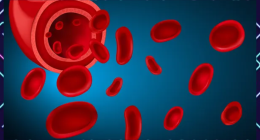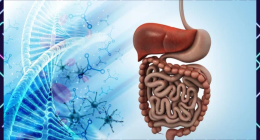Vitamin B12 performs many pivotal roles in the body but chief among them is helping keep the body’s nerve and blood cells healthy. Naturally, having low B12 levels can deal a devastating blow to the nervous system, the destructive effects of which can be permanent. As the NHS explains, a lack of the vitamin can cause neurological problems, which affect your nervous system.
Neurological problems include:
- Vision problems
- Memory loss – a symptom also of dementia
- Pins and needles (paraesthesia)
- Loss of physical coordination (ataxia), which can affect your whole body and cause difficulty speaking or walking
- Damage to parts of the nervous system (peripheral neuropathy), particularly in the legs.
“If neurological problems do develop, they may be irreversible,” warns the NHS.
Case reports of people suffering from low B12 levels offer a chilling account of its destructive effects.
Over the course of two months, a 62-year-old man developed numbness and a “pins and needles” sensation in his hands, had trouble walking, experienced severe joint pain, began turning yellow, and became progressively short of breath.
The cause was lack the of vitamin in his bloodstream, according to a case report from Harvard-affiliated Massachusetts General Hospital published in The New England Journal of Medicine.
According to Harvard Health, a severe B12 deficiency can also lead to deep depression, paranoia and delusions, memory loss, incontinence, loss of taste and smell – symptoms of coronavirus too – and more.
Am I at risk of vitamin B12 deficiency?
There are many causes for vitamin B12 deficiency but the two leading causes are dietary-related and pernicious anaemia.
People adhering strictly to a vegetarian or vegan diet are at a greater risk of B12 deficiency than meat eaters.
That’s because vitamin B12 is found naturally in a wide variety of animal foods and is added to some fortified foods.
As the National Institutes of Health (NIH), plant foods have no vitamin B12 unless they are fortified.
You can get recommended amounts of vitamin B12 by eating a variety of foods including the following:
- Beef liver and clams, which are the best sources of vitamin B12
- Fish, meat, poultry, eggs, milk, and other dairy products, which also contain B12
- Some breakfast cereals, nutritional yeasts and other food products that are fortified with vitamin B12.
Pernicious anaemia, on the other hand, is the most common cause of vitamin B12 deficiency in the UK.
Pernicious anaemia is an autoimmune condition that affects your stomach.
The NHS explains: “An autoimmune condition means your immune system, the body’s natural defence system that protects against illness and infection, attacks your body’s healthy cells.
According to the health body, pernicious anaemia causes your immune system to attack the cells in your stomach that produce the intrinsic factor – a protein which helps your body to absorb vitamin B12.
“The exact cause of pernicious anaemia is unknown, but it’s more common in women around 60 years of age,” it adds.
How to treat B12 deficiency
The treatment for the vitamin or folate deficiency anaemia depends on what’s causing the condition.
Most people can be easily treated with injections or tablets to replace the missing vitamins.
Vitamin B12 deficiency anaemia is usually treated with injections of the vitamin.
There are two types of B12 injections:
- Hydroxocobalamin
- Cyanocobalamin.
Post source Daily Express







